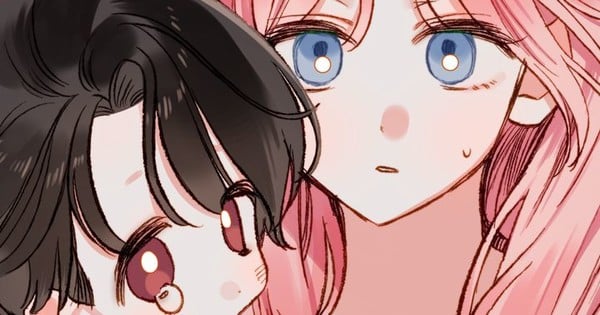Have you ever wondered what happened to the owner of a body that was once occupied by a soul from another world? Not many books seem to care, but Soltan’s I raised a black dragon Not one of them. When Noah wakes up in the body of Eleanora, a not-so-good character from a book she read in Korea, she definitely wants to know where Eleanora went, Because she knew the fact that her wandering soul just saw the woman’s body empty and settled down. Noah isn’t entirely sure why her spirit is wandering around (she assumes she died from overexertion), but she knows she shouldn’t be here because Eleanora’s body is there for people to take, This is so weird and so convenient.
This is just one of the ways in which this series, based on Dalsul’s novels, stands out from its peers. Noah, unlike other heroines in a similar position, has no interest in following the plot or subverting it; she just wants to live her life and avoid those who could tell she’s not Eleanora. Things seemed set for this – Eleonora had already been banished from the capital, so Noah figured she’d just have to keep her head down. However, this isn’t much of a story, so needless to say things don’t go like this: not only does a detective from the city come to keep an eye on her, but she also somehow gets her hands on a dragon egg that, according to the book, is supposed to belong to a different character. Noah tried to get rid of it before it hatched, and later countered the mark of the dragonet, but all was in vain. Noah now reluctantly raises a dragon, which she eventually names Muir, much to the surprise of Detective Kyle.
The story will therefore unfold in two seasons (a typical classification format for web comics), consisting of a total of seventy-four chapters, and at the time of writing, the entire story is available on Manta’s website and app. Manta does its own localization, which is a step above some other Korean web comics sites. The translation is generally smooth and readable, with essentially no awkward phrasing or spelling errors. It reads very naturally, and once you get past the beginning of the series, it’s easy to get immersed in the story of Noah, Kyle, and Muir.
Those teething problems at the beginning go both ways. The more obvious thing is to keep the plot flowing. Noah’s situation is still very cliche at first and may lose readers who aren’t interested in a retelling of a story they’ve read before, and Eleanora is for all intents and purposes a villain instead. Noah is clearly not. Kyle’s distrust of the suddenly changed Eleanora is both familiar and frustrating, and the story takes a while to find its footing. Another issue that may offend readers is that Noah’s attempts to keep out of contact with Muyere may come across as cruel. Her behavior is understandable (she really doesn’t want to get in trouble, and Muyer risks it), but she also refuses to care for a baby who can take on both human and dragon forms. As a baby, Muir couldn’t understand why his “mom” was ignoring him, which made me almost stop reading a few times.
Still, it’s worth sticking with the story, even if it feels like comics The adaptation ends before the original novel, giving us an unsatisfactory conclusion. (Mostly, it must be said, on the romance front.) The story turns into a mixture of political intrigue and mystery, as Kyle and Noah figure out what exactly Eleanora was involved in before her spirit leaves her body. The answer isn’t straightforward, and the two, with the help of the rapidly maturing Muyer, work to uncover a sordid tale of magic and murder. Along the way, Noah discovers more about what happened to her, and Muir’s magic works some miracles to separate her from Eleonora, resulting in the most unique story I’ve ever seen in the genre. One of the story beats. Kyle slowly coming to trust Noah is another helpful element, and there’s real growth for all the characters, which is a major draw.
Art is another attraction. Sottan may not have done much with the vertical scrolling format in terms of innovation, but the art is easy to read and very attractive. Muir is particularly well drawn, with cute little features without being too cute, and Noah tends to dress the two of them in matching outfits, which works better than I thought. The world has an Edwardian feel, with trains and telephones, but nothing more modern, and the clothing remains largely true to the era, although not faithful in a historical sense. The magic system doesn’t always make sense, but there aren’t any obvious logic holes. The setting has an old-school European feel to it, which works well with most of the plot points, and overall, this looks good and reads well.
I raised a black dragon Not perfect, it mostly comes down to an ending that just screams sequel. But it’s also a nice twist on some well-worn elements of its genre, and overall worth a read. The book is currently only available on Manta, but it’s good value for money and an easy series to read when you only have a minute or two to spare, and by vertical-scrolling Korean manga standards it’s a success try.

